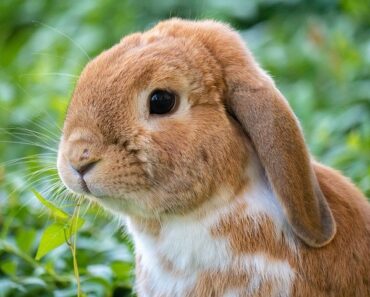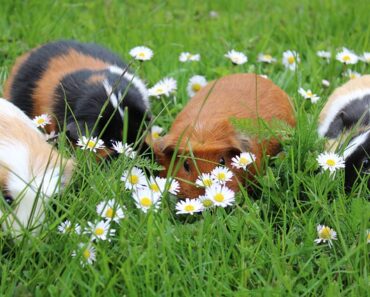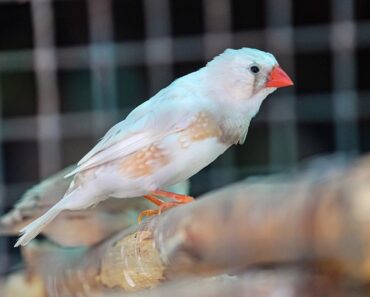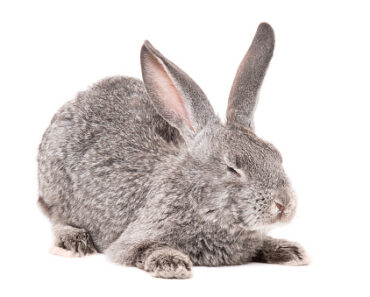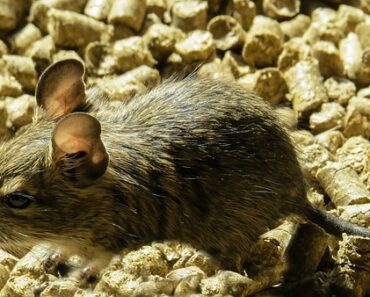
The ferret is the most adopted animal by the French after the dog and the cat. However, its diet is totally different and often unknown. For so long rumours have been spread about the nutritional needs of the ferret, we now know much better how to feed it to ensure its well-being and without risk to its health. Find out which foods he likes and which ones you can give him, but also which ones you should absolutely avoid.
Ferret meals: when? what? how?
The ferret is a small animal that is more of a nibbler than a big eater and it tends to quickly burn what it eats. It therefore needs between seven and ten mini meals every day. Most ferrets can ration themselves, so you can leave your ferret with a full bowl of food if it is fed kibble. However, if your ferret tends to put on weight, feed him more regularly.
Ferrets need a varied and well-balanced diet. However, this balance is not the same as in humans or other animals.
Here are the ferret’s nutritional requirements:
35 to 45% good quality animal protein for amino acid intake.
10 to 25 % lipids to help him to satisfy his hunger and to avoid greedy feeding.
20 % of glucids, which are slow sugars, perfect for its energy.
Few fibres.
There are kibbles specially formulated for ferrets. They are ideal because they are perfectly dosed to meet their needs. On the other hand, it is imperative to choose them of good quality, otherwise the nutritional balance will not be there! 50 g per day is a sufficient ration to be distributed over the day in several mini meals. Never give your ferret cat or dog food, as it is not at all adapted to its needs.
Wet food is not really suitable for ferrets as it promotes the formation of tartar and the development of diarrhoea. They should therefore be avoided or greatly reduced. On the other hand, your ferret should always have fresh, clean water at its disposal. Ferrets drink a lot, but only water is necessary. It is therefore not necessary to vary the water intake.
What your ferret likes to eat
Kibbles are practical and complete, but not all of us want to give this type of industrial food to our animals. The ferret can be fed in a different way, with raw and prepared food. This is generally more economical and healthier for the ferret’s health. On the other hand, we must be vigilant and well-balanced in our preparations to cover its nutritional needs. Indeed, the ferret has very specific needs that it is imperative to respect for its well-being.
Meat: the main food
The ferret is primarily a carnivore and therefore needs to eat meat. Moreover, it is the food that its short digestive tract is best able to digest. Pet stores and specialty stores sell small frozen prey such as field mice, frogs and small rodents. Your ferret will devour these animals whole, preferably in small pieces so as not to overload his food intake and make him sick. If this may surprise you, consider that a ferret eats naturally as it would in the wild and as a cat would when it goes out to hunt its prey.
If you have trouble feeding it prey, you can buy some fresh meat at the butcher’s and cook it a bit before feeding it. Be careful to always offer it in very small quantities.
Fruits and vegetables: in very small quantities.
High in fibre, fruits and vegetables should only be given to your ferret in very small quantities. They are not ideal for a short digestive tract and tend to promote diarrhea, bloating and even constipation.
Limit yourself to cooked grapes, cucumbers and beans, always in very small quantities.
Kibbles: the practical solution
As mentioned above, kibbles are a popular solution for ferret owners because they are balanced and ready to use. When you are short of time or regularly away from home, this is the simplest way to feed your ferret. However, it is important to choose a brand that is suitable for ferrets and of high quality.
What food should ferrets avoid?
Some foods are bad or even dangerous for the ferret and should not be fed. Here is a list of these foods:
proteins of vegetable origin, which are of no use to him,
sugar, because it is toxic to his pancreas,
milk (yoghurt, cheese, ice cream, etc.), because he cannot digest them,
aperitif cookies, too salty,
cereals (wheat, rice, corn, etc.), because it digests them with great difficulty,
chocolate, which is toxic to the body,
raw meat, a source of bacteria.
Always be vigilant, because ferrets are naturally greedy. It will tend to eat anything that is lying around with its back turned, even what is bad for its health. Being fast, it is alas frequent that the owners discover it only too late, once the animal is sick or has died from intoxication.

